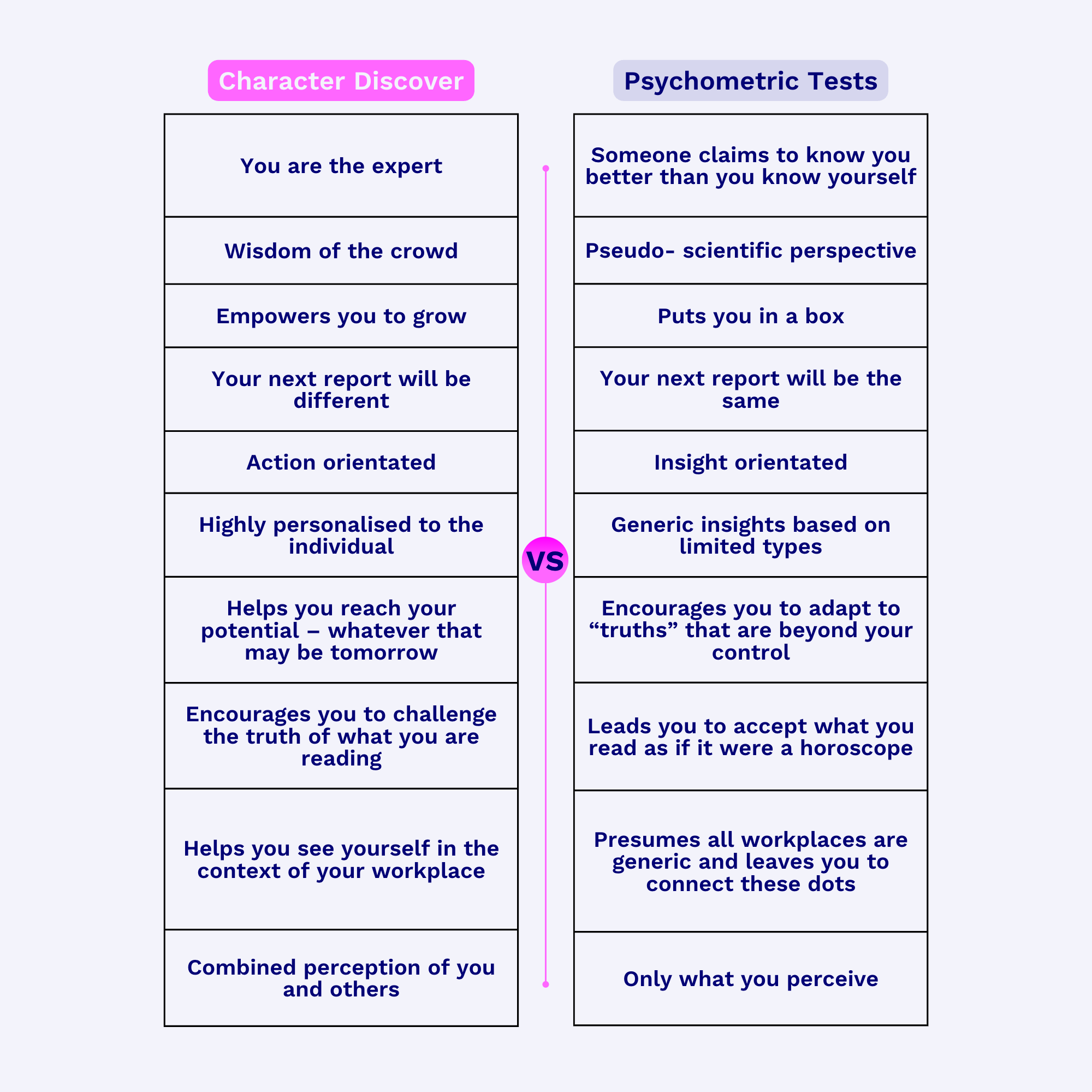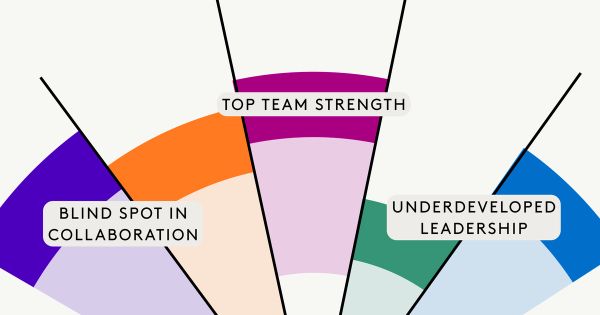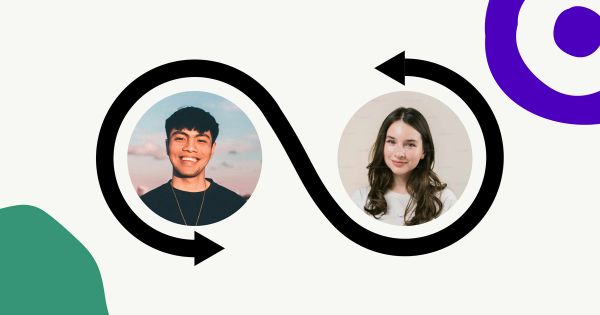Why choose Entelechy's workforce assessment?

Do current personality insights offer your people the chance to grow? Let’s explore one that does.
Introduction
For millennia, humans have been obsessed with knowing themselves better. Since the ancient Greeks, and probably before, our consciousness has screamed to be understood.
At first, there were “wise people”, think shamans, who would speak to us about ourselves, and we would feel known.
We evolved pseudo-scientific models, like phrenology, and finally a scientific model: psychometric testing. Psychologists sought to categorise us into measurable boxes, using metrics that define who we are and how we might react.
Some companies now offer personality tests that claim to have scientific models to support the insights they generate. Really, they are no more than the outputs of statistical probabilities based on survey inputs. A multitude of generic statements that can be compiled into a report, which, on reading seems to know who we are. And it does feel good to be known.
Character versus Personality
The difference between Character and personality is hugely contentious. Fundamentally, it is based on assumptions about how much control we have over who we are beyond genetics and our seventh birthday.
To generalise the personality position, there is an assumption that we are a construct of biology and our early environmental experiences. Therefore, to be able to live a fruitful life, we need to know this constructed person inside out and make the most of what we are given. While a simplification, this gives a flavour of the mindset that comes with psychometric testing.
Entelechy favours the concept of Character over personality. We have made some assumptions when making this differentiation:
- We have decided that humans share innate qualities that define us as a species. We call these Character Qualities.
- We believe that our individuality comes from how prominent these Character Qualities are and how much we consciously use these parts of our humanness.
One person may be highly competitive and another not competitive enough, though the ability to compete is innate in both. One individual may be highly kind, while another finds they are only kind to their pet fish. Both are innately kind, though they express it differently.
This is where Entelechy’s insights come in. If a person sees they need to be more creative in their role, we facilitate them taking control of changing this Quality within themselves. It is not that they are forever labelled as not being creative; it is that they have been shown an opportunity to grow and can change this reality about themselves.
The human character is highly complex. If we were to wake up one morning and decide to evolve the entirety of ourselves, we would likely fall into despair at the immensity of the task. Most of us would pull our duvet over our heads and decide we were doomed to be this way forever.
Where others were trying to make scientific models out of humans, Entelechy consciously decided to use common sense instead. Humans are far too beautifully weird and random for such efforts, and any outcomes would lead to hugely generic statements, rather than celebrating the individual that each of us is.
Instead, we did what all good facilitators of learning do; we took the complexity of the whole and chunked it down into manageable pieces. Instead of saying, “You need more character, go do something about that,” we said, “Here are 54 ways of looking at your character; here’s some feedback on several of those Qualities; choose one and get started there.”
We used our combined experience as teachers, mentors, and coaches to evolve our human Character Qualities model. We then consulted widely with learning and development professionals about which 54 Character Qualities we should use to help people take control of their personal (and professional) development.
Then, we connected these to the soft skills employees said they needed most; and then to aspirations, which help to define the purpose we all desire in our lives. This gave rise to our Be Do Become model, which you can see here. The model tells you that your route to who you want to become is unlocked by the person you choose to be. It is not what you do, but who you are that brings success.
The differentiation we chose to make between personality and Character is that personality is fixed, and we have no control over this; we can only adapt to a situation using the set of rules defined by our coding. On the other hand, Character is highly evolvable, and we can do a multitude of things to grow to our potential. It allows us to become the experts in our lives and make a difference in who we are.
Many industry professionals would find exceptions to our model, and we are happy to debate this with them. However, this must be accessible and democratic. We want everybody to understand the basic principle because developing oneself shouldn’t need a translator. We are here to help you develop the mindset, and empower you with the techniques, that make you your personal coach. Therefore, we boldly say: grow your Character, don’t be limited by your personality.
Ditch psychometric profiles and choose Character Discover
We want to challenge you to think differently; to feel the power you hold over who you are. In this series of articles, we will give you ten reasons to choose Character, as we define it, over personality, as presented in psychometric texts.
What are the ten reasons to choose Character Discover over Psychometric Tests?

Finally, there is an alternative. Let’s get into a discussion about this. Tell us what you think. We are happy to defend every viewpoint and show you why we are doing this. Above all, remember that Entelechy means the actualisation of potential, and we believe the individual should become the expert who makes this happen for themselves.
You may also like

Summer Break: A Guide for Graduates

